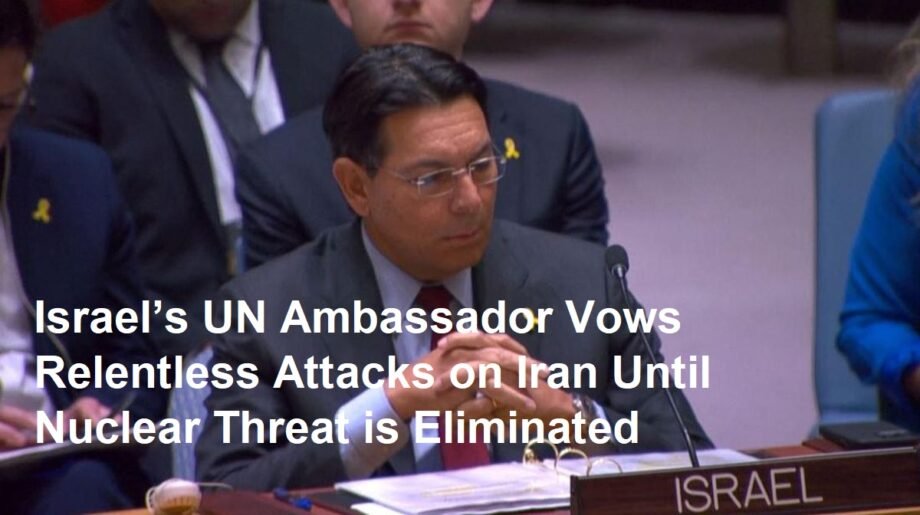Introduction
In a powerful and resolute address to the United Nations Security Council, Israeli Ambassador Danny Danon emphatically declared that Israel will continue its military operations against Iran until Tehran’s nuclear program is fully dismantled. This statement underscores Israel’s strategic priorities in the escalating tensions with Iran and the broader geopolitical ramifications of the ongoing confrontation.
1. The Context of the UN Security Council Address
At a time when global diplomatic efforts aim to ease tensions in the Middle East, Ambassador Danon’s remarks serve as a stark reminder of Israel’s uncompromising stance on Iran’s nuclear ambitions. The Security Council meeting was held amid heightened conflict and repeated military strikes attributed to Israel targeting Iranian nuclear and missile facilities.
2. The Core Message: Unwavering Determination
Danon’s vow that Israel will not halt its attacks until Iran’s nuclear capability is completely removed reveals the depth of Israel’s security concerns. This zero-tolerance approach seeks to prevent Iran from acquiring nuclear weapons that could destabilize regional and global security. The ambassador’s message also signals Israel’s readiness to extend its military campaign regardless of international pressure or diplomatic setbacks.
3. Implications for Iran’s Nuclear Program
Israel’s aggressive posture poses significant challenges to Iran’s nuclear development efforts. The continuous strikes aim to disrupt nuclear research, infrastructure, and weaponization projects. For Iran, this means not only military threats but also increased international scrutiny and potential escalation of sanctions, thereby impacting its economy and geopolitical standing.
4. Broader Geopolitical and Security Consequences
Danon’s speech at the UN Security Council reverberates beyond the immediate Israel-Iran conflict. It highlights the persistent global concern over nuclear proliferation in volatile regions. This hardline Israeli approach may complicate diplomatic negotiations, involving global powers such as the United States, Russia, and China, who seek peaceful resolutions while managing strategic alliances and interests.
5. Reactions and Future Prospects
The international response to Israel’s assertive declaration varies widely. While some allies express support for Israel’s right to defend itself and prevent nuclear threats, others raise concerns about escalation risks and advocate for renewed diplomatic engagement. The evolving dynamics suggest that the coming months will be pivotal in shaping the trajectory of the Middle Eastern security landscape.
Conclusion
Ambassador Danny Danon’s firm pledge at the UN Security Council exemplifies Israel’s prioritization of national security in the face of Iran’s nuclear ambitions. This stance affects not just the two countries directly involved but also the international community, which must navigate the complexities of conflict prevention, nuclear non-proliferation, and regional stability. Understanding these developments is vital for policymakers, security analysts, and global observers committed to monitoring one of the most critical flashpoints in contemporary international relations.









